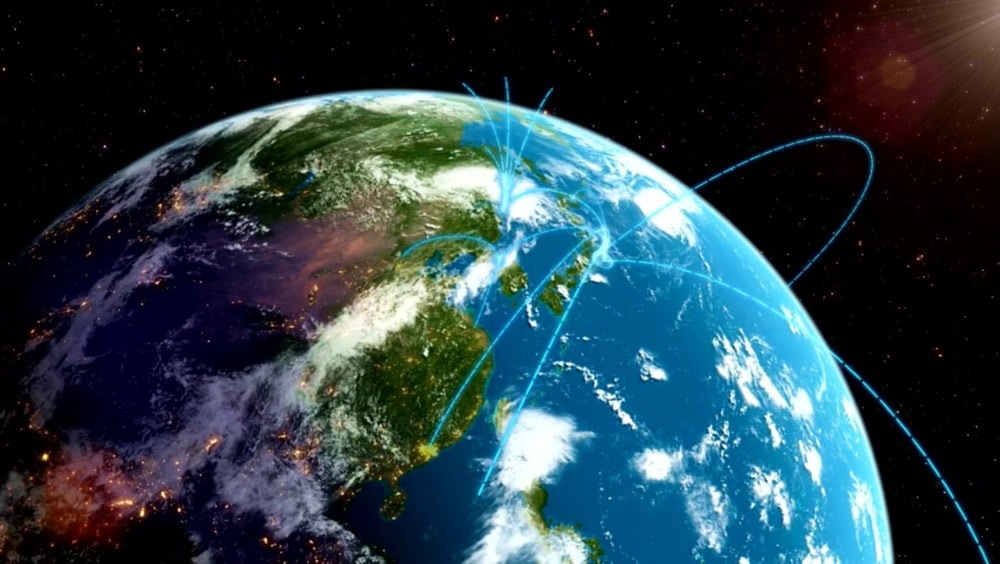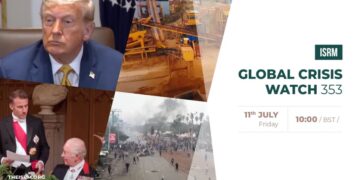Mark Nuttall, Middle East Region Chair for the Institute of Strategic Risk Management (ISRM) offers this piece, unlocking global insights – a digestible overview of highlights on risk, geopolitics, and security in international relations. Here, we’ve given you a taste of the full blog, which can be found via the link at the bottom of this page.
MN: “As we cast our analytical gaze over the global political landscape in 2024, the ‘conflict of nations’ emerges as a complex mosaic marked by the increasingly palpable threads of de-globalisation and a resurgence of nationalism.
“These multifaceted phenomena have become focal points for those of us seeking to fathom the currents shaping our world’s economics, security protocols, and international relations. The interplay of these forces has the potential to redefine power structures and supply chains, posing both risks and opportunities on the grand chessboard of geopolitics.
“Within this intricate backdrop, our discussion will delve into the tangible impacts of retreating global interconnectedness—assessing how economic dynamics alter when the tapestry of global trade is unpicked by the hands of nationalism. The narrative of nationalistic fervour scripting international dialogues sets the stage for a thorough exploration of geopolitical shifts and power realignment.
“Our journey through the valley of economic implications will not shy away from addressing the darker allies of money laundering and corruption. Moreover, we will weigh the strategies necessary to overcome these challenges, promoting stability and growth in a world gasping for the breath of unity amidst the spectres of warfare and resource conflicts.
“This article will unfurl the intricate complexities of these phenomena, offering enlightening insights into their implications for utilities, critical minerals, and environmental social governance—issues that take centre stage against the backdrop of high-profile arenas like Gaza and Ukraine, still scarred by the echoes of COVID and Russia’s geopolitical manoeuvres.”
The Impact of Deglobalisation on Global Trade Dynamics
MN: “In the unfolding narrative of the conflict of nations, we observe the profound repercussions of deglobalisation on global trade dynamics. The year 2023 marked a significant recalibration with global trade growth revised downwards to a mere 0.8%, a direct consequence of rising inflation, soaring interest rates, and the shadow of geopolitical tensions.
“Such economic headwinds have compelled businesses to critically re-evaluate their supply chains, with an emerging trend towards near-shoring or re-shoring strategies, aiming to mitigate the risks associated with overextended global networks.”
As we delve deeper, we uncover that:
- Labour and Political Landscape: Labour shortages, particularly in Asia, compounded by political instability, have been pivotal driving factors for deglobalisation. This has catalysed companies to diversify their supplier base, seeking to shield themselves from the vulnerabilities of concentrated production hubs.
- Technological Adaptation: The advent of digitalisation and the imperative of sustainability serve as critical enablers, allowing companies to adapt to the deglobalisation wave. By enhancing supply chain visibility and prioritising environmental factors, businesses are not only responding to immediate challenges but are also paving the way for a more resilient and responsible trade ecosystem.
- Trade Policy Shifts: It’s noteworthy that global trade as a percentage of GDP has stagnated over the past decade. This inertia is further exacerbated by a dramatic increase in policy-imposed trade restrictions, which have more than quadrupled since 2017, signalling a protectionist tilt in international commerce.
MN: “The landscape of deglobalisation presents both risks and opportunities. On one hand, the world remains deeply interconnected; the recent events have starkly highlighted the inherent risks of dependency, underscoring that no region is entirely self-sufficient. On the other hand, there are burgeoning opportunities in commodities, gold, and specific sectors such as US Steel companies, industrials, and automation services, which may benefit from the deglobalisation trends.”
For the full blog, including insights into nationalism and its various influences, other geopolitical factors having potentially destabilising impacts and a handy F.A.Q and explainer section, click here.
For more ISRM news, click here






